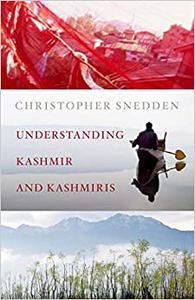
Christopher Snedden, "Understanding Kashmir and Kashmiris"
English | 2015 | pages: 252 | ISBN: 1849043426 | PDF | 2,9 mb
In 1846, the British created the state of Jammu and Kashmir (J&K) - popularly called "Kashmir" - and then quickly sold this prized region to the wily and powerful Raja, Gulab Singh. Intriguingly, had they retained it, the India-Pakistan dispute over possession of the state may never have arisen, but Britain's concerns lay elsewhere - expansionist Russia, beguiling Tibet and unstable China "circling" J&K - and their agents played the 'Great Game' in Afghanistan and 'Turkistan'.
Snedden contextualizes the geo-strategic and historical circumstances surrounding the British decision to relinquish prestigious 'Kashmir', and explains how they and four Dogra maharajas consolidated and controlled J&K subsequently. He details what comprised this diverse princely state with distant borders and disunified peoples and explains the Maharaja of J&K's controversial accession to India on 26 October 1947 - and its unintended consequences.
Snedden weaves a compelling narrative that frames the Kashmir dispute, explains why it continues, and assesses what it means politically and administratively for the divided peoples of J&K and their undecided futures.
Links are Interchangeable - No Password - Single Extraction



